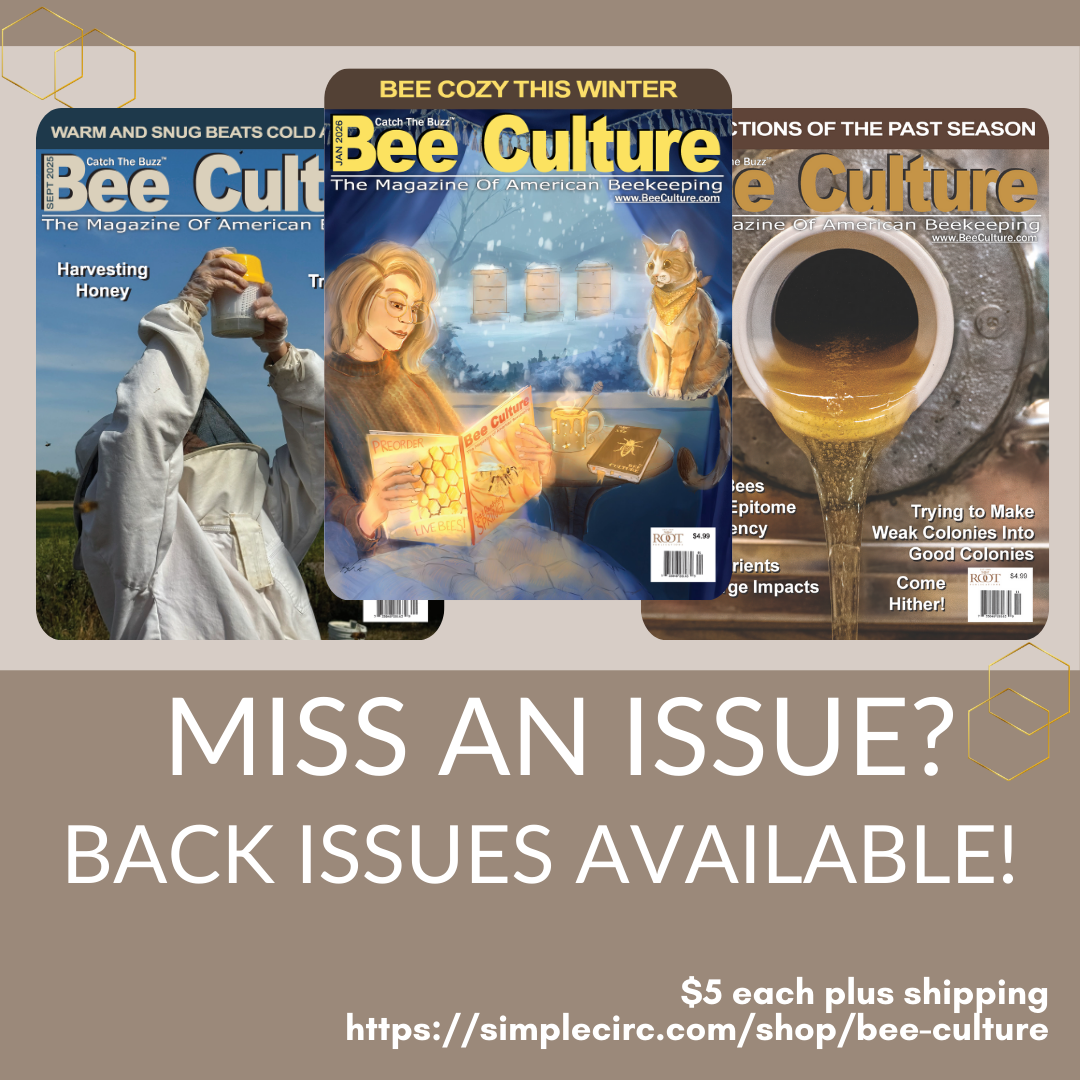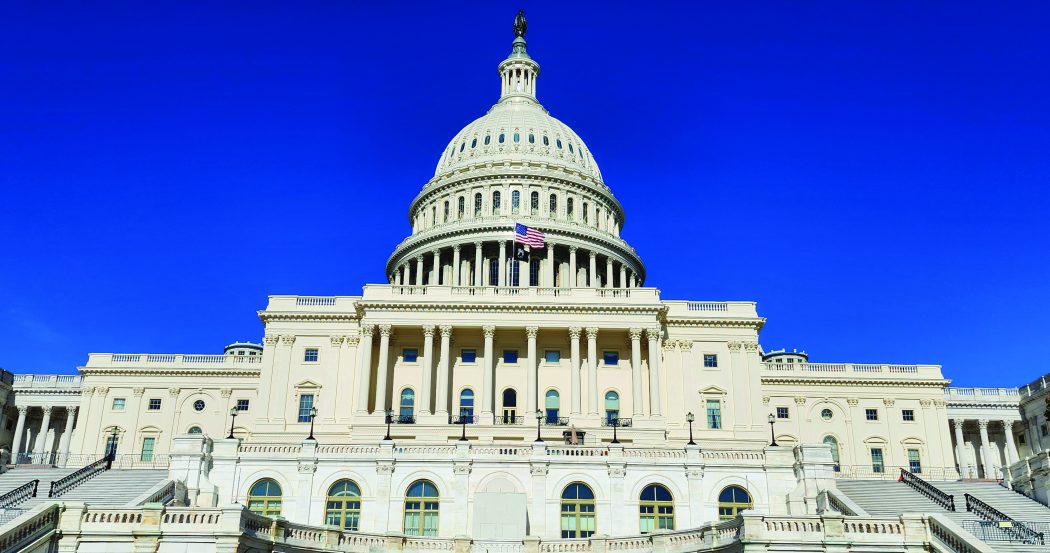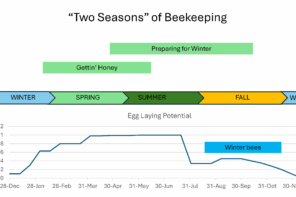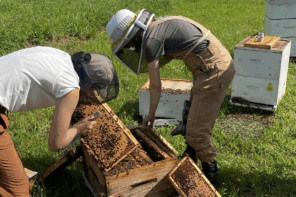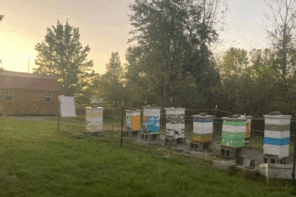By: Debbie Seib, Vice-President & Legislative Chair
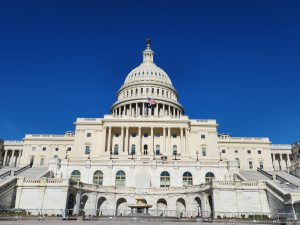 Have We Abandoned the Legislative Agenda?
Have We Abandoned the Legislative Agenda?
As the elected Vice-President and Legislative chair, I can assure you we have not abandoned the legislative agenda. The ABF Legislative Committee meets every month to discuss industry issues and what can be done to impact them. At the beginning of 2024, we created a list of issues affecting our industry. While you are aware there are many issues, we needed to limit the list in order to be able to focus on key ones we felt ABF could make an impact. We chose the following
- Fake Honey: Standard of Identity
- H2A Issues
- Almond Pollination Issues
- Non-indigenous Pests
- Low Honey Prices
- EPA/USDA – Pesticide Issues
- Conservation
- Forage on Government Lands
- Trucking Issues
- Honey Bee Health in North AmericanAs you are aware, things move slow in Washington; however, we still continue to push our agenda. ABF officers, past and present, were in Washington, D.C. the second week in June meeting with senators and representatives to voice our concerns on industry issues. These were our “Asks”:
- First: We would like a 30% increase in funding to specifically target research on the Tropilaelaps mite heading our way. We made it clear; we do not want to reduce other research funds for this. This 30% equated to $9m. This amount was the same that the other national association made as well.
- Second: We would like $500k to keep the USDA Honey Bee & Pollinator Research Coordinator, Office of Chief Scientist. Currently this position is being filled by Elizabeth (Izzy) Hill. This was the same request made by the other national association as well.Both associations had the same “Asks” as we are focusing on the two biggest threats to our industry and it shows a united front to our legislative branch.
At each office, we left this document that included 2024 Legislative/Regulatory Issues from ABF.
Farm Bill
I. The Emergency Livestock Assistance Program (ELAP)
The ELAP program administered by USDA is the sole disaster program available to U.S. beekeepers. Our industry does not have traditional commodity support programs or traditional RMA crop insurance programs to rely on in case of disastrous loss. ABF asks the Congress to reauthorize the ELAP program for honey bees. Beekeepers have been eligible for ELAP loss payments since the 2008 Farm Bill.
ABF supports the Thune-Lujan Livestock Disaster Assistance Improvement Act and supports the inclusion in the Farm Bill. The bill sets a statutory normal bee mortality rate at 15%. It also standardizes the ELAP payment amount and expands the eligibility of the program to include coverage for drought-related losses including costs for transportation of bees, feed and resulting honey crop loss.
ABF supports an exemption from the AGI limitation for farmers that receive 75% of their income from farming or related farming practices and support its inclusion in the Farm Bill.
II. Honey Integrity Issues Mentioning Congressman Armstrong’s HIVE act
U.S. honey producers provide a fraction of the American consumer’s demand for honey. The industry is in a constant state of vigilance with foreign honey producers to ensure that their imported product is safe and that its quality and origin are prominently identified and labeled, with “manufactured” or “synthetic” honey clearly labeled as such. We support all efforts during the farm bill negotiation to ensure a consistent federal Standard of Identity (SOI), a clear and easy to understand country of origin label requirement to greatly improve product traceability, transparency, and testing. ABF supports the efforts of Congressman Armstrong (R- ND) in his efforts to introduce the HONEY Identification, Verification and Enforcement Act (HIVE Act).
III. ARS Honey Research Authorization
ABF supports the extension of the authorization of the USDA ARS honey bee research labs. The core of these research funds directed to the ARS bee labs in Beltsville, MD, Baton Rouge, LA, Tucson, AZ and Davis, CA. These labs are underfunded, and we are seeking a significant increase of $9 million in FY2025, given the serious threat of emerging pests.
IV. Honey Bee Research Coordinator Position at Office of Chief Scientist, USDA
ABF supports the extension in the farm bill of the 2018 authorization of the USDA Honey Bee and Pollinator Research Coordinator established in the 2018 farm bill and the funding necessary to support the functions of this office to all beekeepers and all pollinators.
V. Conservation Issues
Support direct funding for USDA projects where managed bees are part of the efforts toward reforestation and other USDA conservation and climate efforts throughout the Department. Improve the amount of pollinator friendly acreage included in FSA and NRCS conservation programs. Include in these efforts the Honey Bee Health Coalition recommendation on seed mixes for CRP. Include honey bee recommendations in new regenerative farming funding /grants to support CRP funding for marginal lands & pollination plantings.
VI. APHIS Bio-Controls
Instruct APHIS to conduct a full Environmental Impact Statement (EIS) pursuant to NEPA on tallow mitigation before finalizing any permit decisions for biocontrol. Supportive language in FY 23 & 24 Appropriations.
VII. Public Lands Access for Honey Bees
ABF supports all action by the Congress to assist in improving the access to federal public lands (U.S. Forest Service and Bureau of Land Management) to beekeepers by providing guidance to local federal land managers to approve multi-year beekeeper permits and to ensure honey bee access to federal public lands is prioritized.
VIII. Canadian Border and U.S. Honey Bees
Encourage the opening of the Canadian border to shipments of U.S. packaged bees (with agreed to protocols).
2025 Appropriations I. Honey Bee Research Funding at ARS
The beekeeping industry is seeking a $9 million increase in funding for honey bee research at ARS/USDA research labs and cooperator labs in FY 2024. Specifically targeting research to prevent the introduction and control of the Tropilaelaps mites. The introduction of this mite to the U.S. and North America is the biggest threat to honey production and agricultural pollination our industry has faced in decades.
II. Honey Bee Research Coordinator
Support funding the USDA Honey Bee and Pollinator Research Coordinator position within the Office of the Chief Scientist at USDA at no less than $500,000 to support the coordination of research activities across the Department of Agriculture and support establishing this position & funding in the USDA budget submission.
III. ELAP
Ensure ELAP reimbursements to beekeepers are market-based per hive are established and maintained. Restore the expected mortality rate to 15% or lower for the purposes of administering the program (included in both FY’22 and FY’23 Appropriations).
IV. APHIS
Instruct APHIS to conduct a full EIS on tallow mitigation efforts before finalizing agency decisions (highlighted in FY’23 Appropriations)
Other Legislative Issues of Interest to ABF I. DOL H-2A Regulations on Wage Rates
Support all efforts to ensure DOL labor rates for H-2A workers remain competitive to avoid a rapid reduction in honey production and pollination services that would result from a drastic increase in labor costs to honey producers. Support legislation to prevent current H-2A wage regulations.
II. House Ag Committee Task Force on Ag Labor
ABF supports the efforts by the Chairman of the House Agriculture Committee establishing a Bi-Partisan Committee Task Force on Agricultural Labor. ABF urges Congress to move forward on this recommendation made by the House Task Force.
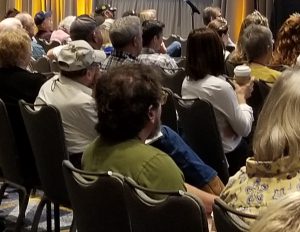 III. Trade Legislation
III. Trade Legislation
ABF supports current efforts to reduce the trade of imported honey that does not meet established standards & certifications.
ABF has signed Letters of Support for Loss and Management Survey, The One Bee Initiative, Precision Pest Management and IR-4 Integrated Solutions Project. Our goal is to encourage funding for research that focuses on honey bee health and stability. We also signed the letter to Congressional leadership in the House and Senate on the need to pass the farm bill.
While it is important for us to focus on Legislative Issues, it is also important for us to be in touch with our membership. ABF represents beekeepers of all levels. Our membership continues to increase with our goal to hit 1,000 by year end. Our new members and those that have been members for years, are reaching out to us as they want to be a part of an industry that is positive in its message. George Eiden is 94 years old and been a member since 1962. While many of our older members are no longer able to attend our conferences, they remain loyal members because they believe “We are all in this together”.
Speaking of our annual conference, planning for our 2025 Conference and Tradeshow is well underway. The Keynote speakers have confirmed; Dr. Marla Spivak from University of Minnesota, Dr. Geoff Williams from Auburn University, and Dr. Scott McArt from Cornell University. The agenda is complete with our three tracks and over 45 vendors have committed to be in our Tradeshow. This is our annual event that brings beekeepers of all levels together along with industry researchers and apiary inspectors. For the latest information see our website at: https://abfnet.org/2025-abf-conference/
Feel free to contact me to discuss any of the above topics at seibshoosierhoney@yahoo.com




